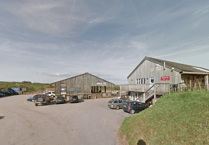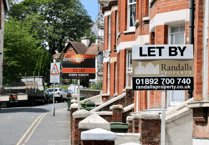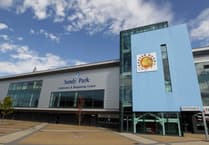DEVELOPERS wanting to build 158 homes and a group of commercial buildings next to Exeter Chiefs’ Sandy Park rugby stadium have told city councillors their plan would deliver 1,000 jobs.
But members of the city council’s planning committee have decided it isn’t enough.
The Sandy Park Farm Partnership had asked for permission to build the homes along with 17,500 square metres of commercial floorspace on fields just to the west of the rugby ground.
It said the development would meet housing needs while at the same time providing jobs.
But council officers said while developing the green field site was acceptable, the proposed mix of homes and commercial units was not.
The company that runs the Chiefs also objected, citing access to the site, particularly on busy match days.
Town planner James McMurdo, on behalf of the applicants, said councillors should put off making a decision until after they had visited the site to see the impact made by the eight-storey Marriott Hotel there.
Cllr Michael Mitchell (Lib Dem, Duryard and St James) said: “Whatever we do, at some stage this land will be developed.”
He said he was concerned that refusing the plan would lead to an appeal, meaning the council would lose control of the outcome. He called for a site visit and said: “I’m sure the developer wants to work with us to get what is right for the site – and I don’t think we have got the right answer yet.”
Cllr Yvonne Atkinson (Lab, Alphington) said there were too many ‘unanswered questions’ surrounding the scheme and added: “We want it to be developed in a way that benefits the whole of Exeter.
“People need to live, but people need to earn a living too.”
The council’s director of city development Ian Collinson told the committee: “The key issue is that this proposal would not deliver enough employment land. By approving it, that opportunity to provide the right amount of employment land would be lost.
“In the Newcourt area no employment land has been delivered to date, and there is relatively little land left.”
Cllr Mitchell’s move to wait for a site visit was defeated, and the committee voted by eight votes to nil, with two abstentions, to reject the plans.





Comments
This article has no comments yet. Be the first to leave a comment.